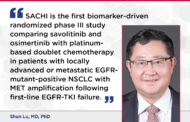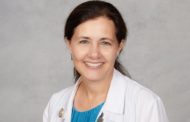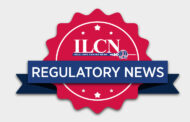The first plenary session of the 2024 Asia Conference on Lung Cancer (ACLC) provided valuable insights into the latest news from recent and ongoing clinical trials across Asia. During the session titled “Advancing Lung Cancer Treatment: Insights from Ongoing Clinical Trials in Asia,” Caicun Zhou, PhD, MD, explored the landscape of advanced lung cancer research in China and EGFR-targeted therapies. If you missed the session, registered attendees can access it via IASLC’s education center, Lung Cancer 360.
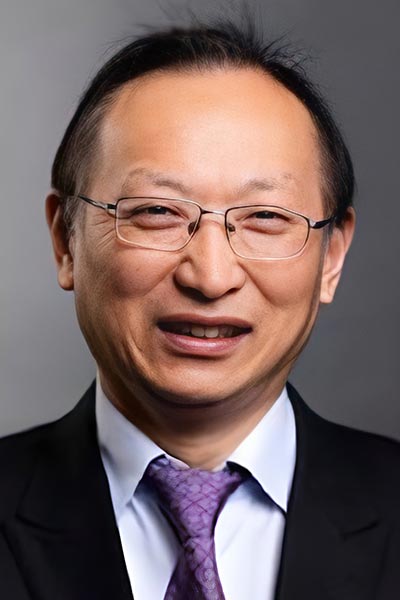
Prof. Zhou, the Director of the Department of Oncology at Shanghai Pulmonary Hospital, the Director of the Cancer Institute at Tongji University Medical School, and the Chairman of the Oncology Department at Tongji University, discussed recent clinical trials in China, such as an ongoing phase III study comparing BL-B01D1 to docetaxel in previously treated patients with EGFR wild-type non-small cell lung cancer (NSCLC).
Prof. Zhou also noted that third-generation TKIs are superior to first-generation TKIs with respect to progression-free survival (PFS) against classical EGFR mutations. He also discussed potential strategies to enhance the efficacy of TKIs, which include combining them with chemotherapy, radiotherapy, and immune checkpoint inhibitors (ICIs).
Many compounds are currently undergoing clinical studies, including targeted therapies, PD-(L)1 inhibitors, bispecifics, antibody drug conjugates (ADCs), and bispecific ADCs, according to Prof. Zhou.
“We are trying to establish novel therapies or combination strategies for lung cancer to overcome resistance and improve efficacy for our patients,” he said.
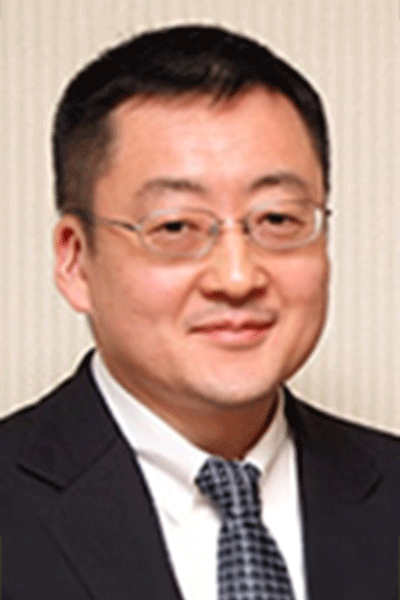
Isamu Okamoto, MD, PhD, Professor and Chairman of the Department of Respiratory Medicine at Kyushu University, discussed the results of two phase III studies conducted by the West Japan Oncology Group.
The first study, the APPLE trial, aimed to compare atezolizumab with platinum-pemetrexed, with or without bevacizumab, in patients with non-squamous NSCLC. The study failed to demonstrate superiority for the addition of bevacizumab to atezolizumab combined with carboplatin and pemetrexed (CBDCA/PEM) in advanced non-squamous NSCLC.
“In patients with driver oncogene positivity, the addition of bevacizumab to atezolizumab plus CBDCA/PEM resulted in prolonged PFS, whereas no such effect was apparent for patients with driver oncogene negativity,” Prof. Okamoto said.
Prof. Okamoto also discussed findings from the NIPPON trial, a phase III study that compared platinum-doublet chemotherapy plus pembrolizumab with platinum-doublet chemotherapy in combination with nivolumab and ipilimumab.
The study was terminated early due to a high rate of treatment-related deaths in the nivolumab and found no significant difference in PFS or overall survival (OS).
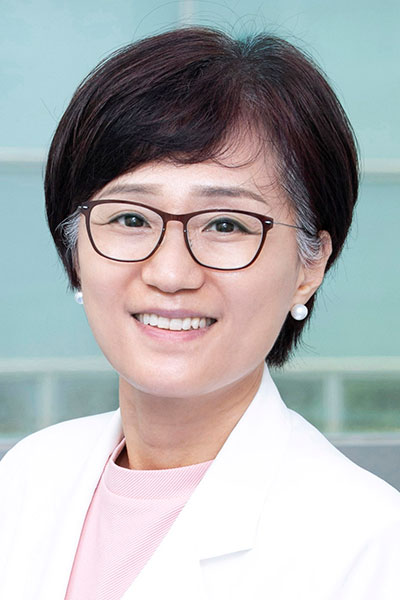
Ji-Youn Han, MD, PhD, from the National Cancer Center in Goyang, Korea, shared insights into the role of osimertinib in the treatment of NSCLC harboring EGFR mutations, as well as the development of EGFR-targeted therapies in Korea.
During her presentation, Dr. Han emphasized the importance of considering both clinical and biological factors in determining the most effective treatment strategies. These factors include the type of EGFR mutation, tumor volume, the presence or absence of brain metastases, and co-mutations.
“The treatment landscape for EGFR-mutated NSCLC has evolved in recent years. However, the emergence of resistance mechanisms and increased heterogeneity present unavoidable limitations to the effectiveness of treatment, which explains the modest improvement in survival rates,” she said.
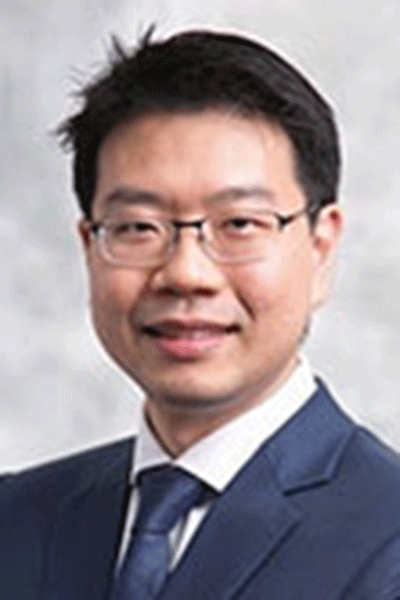
The plenary session concluded with a presentation by Daniel Shao Weng Tan, BSc, MBBS, MRCP, PhD, Head of the Division of Clinical Trials and Epidemiological Sciences and Associate Professor at Duke-NUS Medical School. Dr. Tan illuminated various challenges in cancer care, including escalating costs and disparities in healthcare access.
He focused on the need to optimize molecular profiling to match patients with appropriate therapies to improve outcomes. Dr. Tan also stressed the importance of incorporating an academic perspective to help deliver new technologies and implement policy changes.
“I think there’s a need for an academic voice based on collective wisdom to articulate these needs and to advance the science in a rational way,” he said. “I think technology is there to be leveraged and scaled; the key will be developing that expertise and workforce so that we can deliver on these promises.”


